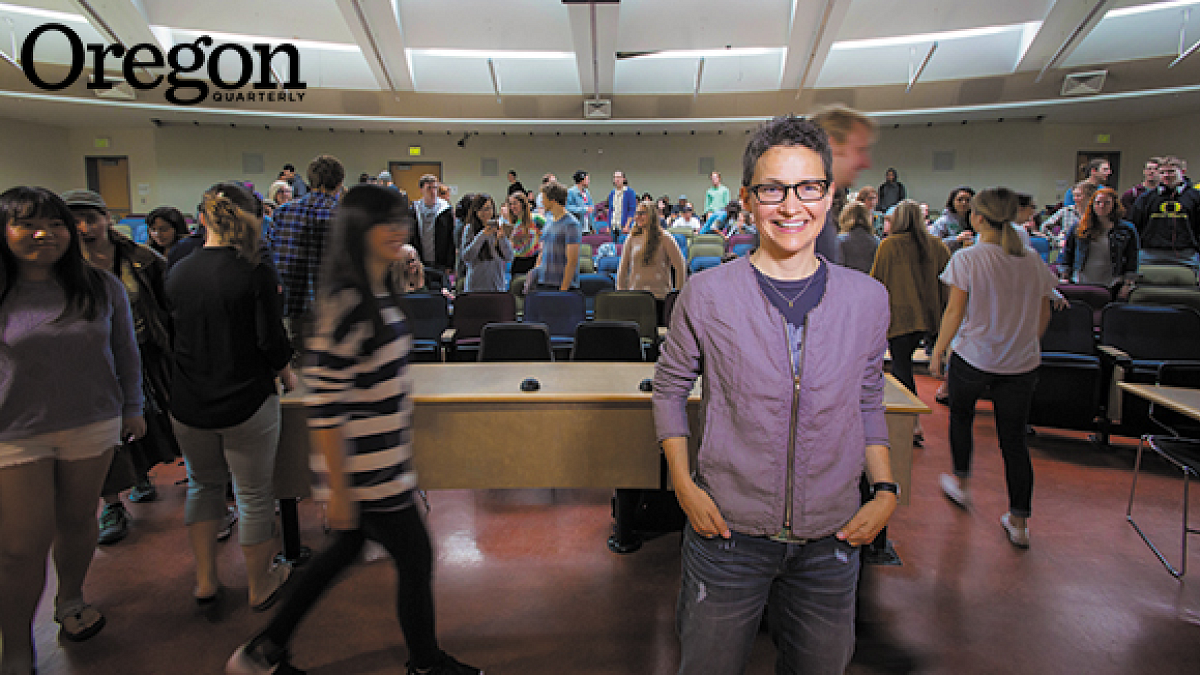Imagine change
Loosely translated from the French, Stephanie LeMenager’s last name means to manage, to be sparing with. While she’s a steward for the environment as a leader in the field of environmental humanities, she spares nothing as a cultivator of imaginations. Her students script and record one- minute audio stories about a climate-changed future, which are published on an internationally recognized website. Or, they might keep daily inventories of their interactions with products made of plastic. Easy classroom assignments? Not quite. While creating an atmosphere of play, LeMenager requires rigor and research. “They have to tell me the most complete, interesting story that they can, and develop a point of view both local and global,” she says. “I want to instill in my students an ethic of care.”
Students as Collaborators
Working with students to imagine the human dimensions of climate change has led to a new book, the edited collection Teaching Climate Change in the Humanities (Routledge, 2016), which grew out of one of her graduate seminars. The first textbook of its kind, it also marks the first time LeMenager has produced a book with students, advising coeditors and UO doctoral students Stephen Siperstein and Shane Hall.
Learning from Everyone
“We asked, how can we teach climate change in a way that complements the work of social and physical scientists? Working alongside artists and activists and just regular people, it struck me as an ideal example of just how hands-on and practical humanities teaching can be.”
What She’s Pondering
What does it mean to be human at a time of climate change? That’s a question LeMenager has been playing back in her head for some time. “I’ve begun to see being human as a set of practices to aspire to; an ethic, not a given biological or spiritual status.”
On Being the Moore Chair
“Endowed faculty positions signal to everyone—students, faculty, alumni—that this is a university that seriously values research and mentoring,” LeMenager says, adding that the visibility of her endowed position helps attract graduate students to work with her and UO colleagues in environmental humanities, extending the school’s reach and influence.
Worth Defending
“I believe that art acts in the world in a very broad and powerful way. Some academics who shun the arts have pushed back very hard against these views. This strikes me as a crying shame, because the great lessons of climate change for me include that all kinds of experts and scholars and everyday people need to be coming together and bringing their knowledge to the table to work on this hugely complex problem.”
—By George Evano, University Communications


